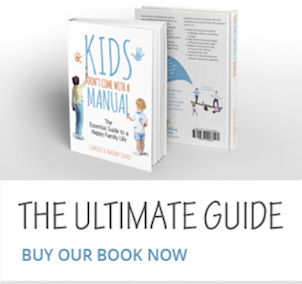I think that most parents must have had a similar experience to the one I experienced on a Saturday afternoon a few weeks ago:
After a particularly challenging week at work, all I could think about was ‘putting my feet up’ and having a few moments to myself to relax and unwind. Bad idea! Any parent knows that the second you think about relaxing is the moment when kids most like to throw a curveball in our direction!
I could hear a commotion coming from the bathroom – lots of noise from my three-year-old daughter Yara, and her older sister, five-year-old Yasmine. I opened the door and was greeted by the sight of my two daughters drenched in water and covered in mud. Yara was crying while screaming, “My skirt is wet, my skirt is wet!“ Yasmine was also crying while screaming, “Yara, I told you how to turn off the tap, you turned it the other way and now we’re all wet!” Apparently, they had been playing in the park barefoot and were trying to clean the mud off their feet.
Now at this point, when I was more strict and authoritarian, I would’ve most probably lost my temper and yelled, “I can’t trust you to be alone for two minutes!” followed by a lecture. This would inevitably result in the children crying even more, and I would have spent the following minutes mopping the floor, while grumbling about their behaviour. In other words, I would spend my time and energy being annoyed instead of trying to see the positive side of what was in fact, a very funny situation where my kids could learn some valuable lessons. I had also learnt from extensive research that it is important for children to make mistakes and that our reaction to their mistakes defines how children view them: as opportunities for learning or as a failure that can affect their self-esteem.
Thankfully this time, I managed to take a different approach. I took a deep breath and stopped myself from yelling by just saying “Ooooooohh, …” while I was gathering my thoughts to try and find something that could be somewhat empathetic. My goal was to try and ‘connect with them where they are’ as I learnt from research and my own experience that it is the best way to diffuse a situation. So I ended up saying: “You’re all wet and you don’t seem to like this at all!”. The result was that Yasmine was able to stop crying for long enough to tell me what had happened – Yara had opened the tap the wrong way and the pressure was so high that it splashed everything with water. As they had walked barefoot, the whole bathroom was covered in mud. Both girls were still visibly upset, but at least I had their attention now.
My youngest was still distressed about her skirt, so I knelt down to her level and asked “Would you like to keep the skirt on or give it to me so that I can put it out to dry”? She clearly wanted to remove her skirt so a smile beamed across her face and she immediately started undressing. I then asked both girls “What are you going to do about this mess?” They looked a little confused, so I prompted them by asking, “Do you want some ideas?” In unison, they both said ‘Yes’ and it was clear that both girls were already much calmer.
“In order not to mess things up more, I think it would be a good idea to wash your feet. Do you want to do this with wet wipes or in the bath?” They both answered me excitedly, “Wet wipes!” So I handed them the wet wipes and watched as they sat on a small bench cleaning each other’s feet – they looked so cute together, it was impossible to feel mad at them.
I then asked them “Would you like a mop or kitchen paper to mop the floor?” “A mop, please!” they answered. I handed them the mop and watched as they happily mopped the floor until it shined. I was so impressed by the job they’d done and so happy to see them smiling again that I scooped them up in my arms and gave them a big hug.
I was so proud of myself for reacting differently this time, and even more pleased that because I’d chosen to respond in a different way, the situation had actually turned out to be a very funny and positive experience. And the best part is that the floor got cleaned without me or their Mum having to lift a single finger! Now, when my children decide to test me (as they frequently do!) I choose (as often as I manage to!) to respond in a more balanced way, and remind myself that I always have the power to turn a potentially negative situation into a positive one.
Please share your own real-life stories with us and let us know if you’ve experienced similar situations in the comment box below!













































